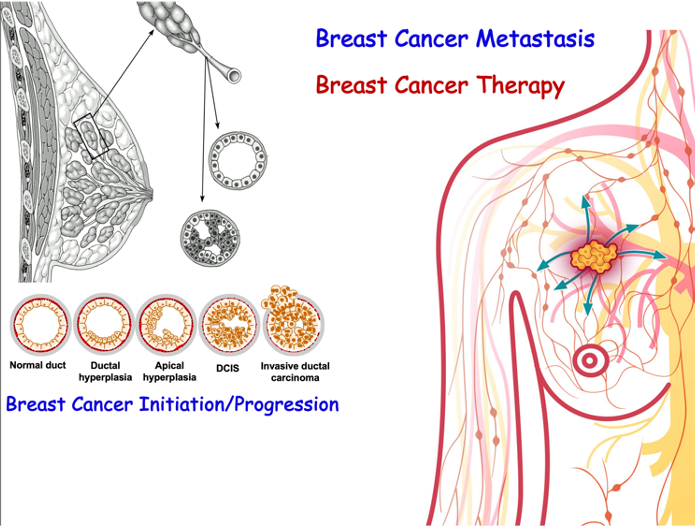Research and Current Projects

Posttranslational modifications such as ubiquitination, methylation, ADP-ribosylation as well as phosphorylation orchestrate genome stability, cell division, hormone-initiated signal transduction, apoptosis and tumorigenesis. Posttranslational modifications act as critical molecular switches or fine-tune operators that determine the activation, deactivation or subcellular localization of functional proteins. Emerging evidence has drawn attention to the modulation of regulatory proteins in response to extrinsic/intrinsic signaling being executed simultaneously by multiple posttranslational modifications. Research interests in my laboratory seek to address how defects in the ubiquitin-proteasome system (E3 ligase/deubiquitinase), protein methyltransferase, glycosyltransferase and poly (ADP-ribose) polymerase 1 (PARP1) would result in genomic instability, abnormal cell cycle or immune checkpoint function, and aberrant signal transductions (e.g., ER, TGF-β, EGFR and Hippo) that predispose otherwise normal cells to become cancerous tumor cells. The ultimate objective is to integrate our basic research with clinical translational studies that would allow the development of new anti-cancer therapy thereby fully exploiting our knowledge of posttranslational modifications. To achieve our goals, we have developed a multidisciplinary approach that includes biochemical, cell biological, genetic, protein structural analyses as well as the use of animal models and analyses of clinical specimens.
- The Role of Posttranslational Modifications in Regulating Immune Checkpoint Function
- Posttranslational Modifications in Genome Stability and Carcinogenesis
- Posttranslational Modifications in Oncogenic Signaling
- Posttranslational Modifications in Mitotic Regulation and Tumorigenesis
- Anti-cancer Drug Development

